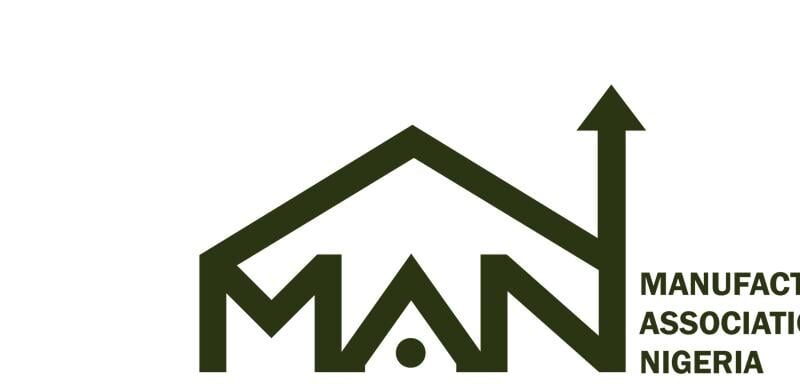CBN urged to introduce N10,000, N20,000 single notes
 A new economic review by Quartus Economics has urged the Central Bank of Nigeria to introduce higher-value currency notes such as N10,000 and N20,000 bills to restore the naira’s portability and reduce the rising cost of cash transactions.
A new economic review by Quartus Economics has urged the Central Bank of Nigeria to introduce higher-value currency notes such as N10,000 and N20,000 bills to restore the naira’s portability and reduce the rising cost of cash transactions.
The report, titled “Is Africa’s Eagle Stuck or Soaring Back to Life?”, warned that the naira’s continued depreciation had rendered the N1,000 note, the country’s highest denomination, practically obsolete in terms of purchasing power.
“To make the naira portable again, Nigeria can introduce higher-value bills, e.g., N10,000 or N20,000 notes, or redenominate the currency entirely,” the report stated.
According to the analysts, a N5,000 note that would have been introduced in 2012 would now be equivalent to a single N50,000 note today, reflecting the 94 per cent decline in the naira’s real value over the last two decades.
It added that the notion that introducing higher-value notes could worsen inflation was a “myth unsupported by evidence,” explaining that inflation is driven by cost-push and demand-pull factors, not by currency denomination.
“Inflation is cost-push or demand-pull. Neither is related to currency denomination. Instead, countries introduce higher notes to maintain portability after an era of currency depreciation.
“Countries introduce higher-value notes to maintain portability after a period of significant currency depreciation, not to trigger inflation,” the report clarified.
When the N1,000 note was introduced in 2005, it was equivalent to nearly $7 at the official exchange rate. Today, it is worth less than 60 US cents, underscoring the naira’s sharp erosion in value.
Quartus Economics noted that this depreciation has made everyday transactions burdensome, particularly in the informal sector, where cash remains dominant. Traders, artisans, and rural consumers now carry large volumes of cash for transactions that could easily be done with a few higher-value notes.
The report also pointed out that the cost of printing, transporting, and securing lower-value notes had become prohibitive for the CBN.
“Outside the formal sector and the urban elite, the naira’s heavy weight is a drag on the economy and slows down growth. Besides, the cost of printing and transporting today’s low-value notes is prohibitive,” the report said.
It argued that the introduction of N10,000 and N20,000 notes, or a broader redenomination exercise, would improve transaction efficiency, reduce printing costs, and align Nigeria’s currency structure with that of other emerging economies.
The PUNCH recalls that the CBN once proposed introducing a N5,000 note in 2012 under the then Governor, Sanusi Lamido Sanusi, but the plan was dropped after public opposition.
Quartus Economics now argues that the same policy logic remains valid more than a decade later, given the naira’s steep decline.
The firm said the proposed measure was not about “printing more money”, but about modernising the naira’s denominations to reflect current economic realities and make transactions more practical.
According to the report, the 94 per cent fall in the naira’s value was calculated using the cost of two essential items, a kilogramme of imported rice and a one-way flight ticket from Lagos to Abuja.
From about N150 per kilogram of rice in 2005, the price now averages N2,500, while the cost of a local flight has risen from N12,000 to more than N150,000.



 The Nigerian Exchange Group has recorded a 37.7 per cent growth in market capitalisation, rising to N141.75tn as of September 2025 from N102.94tn in the same period of 2024.
The Nigerian Exchange Group has recorded a 37.7 per cent growth in market capitalisation, rising to N141.75tn as of September 2025 from N102.94tn in the same period of 2024.


 Spaces for Change has congratulated the Federal Republic of Nigeria on its removal from the Financial Action Task Force grey list, describing the milestone as a major achievement in strengthening the integrity of the country’s financial system.
Spaces for Change has congratulated the Federal Republic of Nigeria on its removal from the Financial Action Task Force grey list, describing the milestone as a major achievement in strengthening the integrity of the country’s financial system.
 BUA Cement Plc has reported a profit after tax of N289.9bn for the nine months ended September 30, 2025, representing a 492 per cent increase from the N48.97bn recorded in the same period of 2024.
BUA Cement Plc has reported a profit after tax of N289.9bn for the nine months ended September 30, 2025, representing a 492 per cent increase from the N48.97bn recorded in the same period of 2024.
 The Nigerian Exchange Group has recorded a 37.7 per cent growth in market capitalisation, rising to N141.75tn as of September 2025 from N102.94tn in the same period of 2024.
The Nigerian Exchange Group has recorded a 37.7 per cent growth in market capitalisation, rising to N141.75tn as of September 2025 from N102.94tn in the same period of 2024.




 Nigeria’s capital market regulator, the Securities and Exchange Commission, has raised concerns over the growing preference of Nigerians for cryptocurrency trading over investments in the traditional capital market.
Nigeria’s capital market regulator, the Securities and Exchange Commission, has raised concerns over the growing preference of Nigerians for cryptocurrency trading over investments in the traditional capital market.